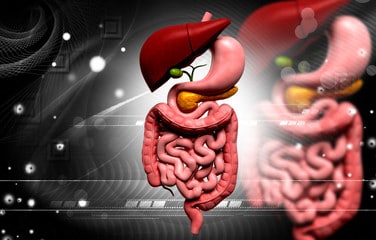The health of the digestive system is impacted directly by the food we consume and our lifestyle. The digestive system needs to function more effectively and efficiently, to improve overall sense of well-being and general body health. There are some vital tips for a healthy digestive system, which you should not only know, but follow.
Tips for A Healthy Digestive System

The job of the digestive system is to break down the foods you eat into the small nutrients which your body requires to function properly. If you ignore your digestive health, your body encounter problems absorbing those nutrients. The top tips for a healthy digestive system include:
1. Consuming a lot of fibre
Fibre has become a common term as its benefits for proper digestion is now common knowledge. It is the indigestible form of carbohydrates found mainly in plants. It is of different kinds, each with its unique importance to nutrition and health.
Soluble fibre absorbs water and helps add bulk to your stool. Insoluble fibre acts like a giant toothbrush, helping your digestive tract keep everything moving along. It dissolves in water partially, creating a gel-like substance that helps lower cholesterol. Sources of soluble fibre include apples, oranges, barley, rye, dried beans, and oats.
Insoluble fibre remains more intact as it passes through the digestive system. That makes insoluble fibre especially helpful in preventing or easing constipation. Insoluble fibre may also help with weight loss by making meals seem more filling without adding calories. Sources of insoluble fibre include seeds, wheat, tiger nuts, carrots, and ofada rice.
In general, high fibre diets promote bowel movement and linked to a reduced risk of digestive conditions, including ulcers, reflux, hemorrhoids, and diverticulitis.
2. Reduced intake of fat
Dietary fat is a term usually used to describe the major dietary lipids called triacylglycerols. Other minor ones include the phospholipids, waxes, fat-soluble vitamins, carotenoids, sterols, etc. Fats are required in the human diet as they provide the body with energy and essential fatty acids, improve the absorption of fat-soluble vitamins, among other functions. They can enhance food palatability and influence food texture. Studies have shown that omega-3 fatty acids may decrease your risk of developing inflammatory bowel diseases like ulcerative colitis.
In contrast, a diet high in fat can make the digestive system sluggish and may cause or aggravate diseases of the digestive system (and also heart disease). Fatty foods tend to slow down the digestive process, making you more prone to constipation.
3. Staying Hydrated

Low fluid in-take has been one of the main reasons behind constipation. Experts recommend drinking a lot of non-caffeinated fluids per day to prevent it, especially if you live in a warm climate or exercise strenuously. In addition to water, one can also meet your fluid intake with herbal teas and other non-caffeinated beverages such as seltzer water.
Another way to help meet your fluid intake needs is to include fruits and vegetables that are high in water, such as cucumber, zucchini, celery, tomatoes, melons, strawberries, grapefruit and peaches.
4. Exercising Regularly
Exercising is known to be one of the best ways to lose weight and to maintain a healthy body weight to ward off digestive system problems according to health professionals.
Exercise and digestion can be mutually exclusive. During an exercise program, the body stops using up energy for digestion. Instead, it slows any absorption currently taking place so it can divert as much blood as it can to feed the muscles and your lungs. So eating before exercising could lead to gastrointestinal disorders, although it depends on the type of food eaten and the intensity of your exercise program, one may suffer from heartburn, abdominal pain, or even vomiting. Therefore, eating a sophisticated meal that’s high in fibre, protein, or fat before a high-intensity workout is not a good idea and may not end well. It doesn’t mean one should give up exercising, but to make sure the exercise time does not coincide with digestion time. Over time, regular exercise tends to strengthen the digestive tract. If you’re fit, the muscles are more efficient, and the amount of blood diverted from your digestive system decreases because the need is less urgent. Exercise can even help with the treatment of constipation and promote healthy digestion.
A regular exercise regimen, along with a positive mental outlook and a healthy, high-fibre diet, are the building blocks of a healthy lifestyle.
5. Stop bad habits that hurt the digestive system
Bad habits like smoking, excessive alcohol consumption should be refrained from as they can interfere with the functioning of your digestive system and lead to problems like stomach ulcers, pancreatitis, peptic ulcer, etc.
Smoking negatively affects the lower esophageal sphincter(a muscle that helps to keep the contents of the stomach from following backward into the esophagus/throat ), increasing the risk of heartburn and GERD. It may also increase the production of other substances, such as pepsin (an enzyme made in the stomach that breaks down proteins) that may harm the lining of the stomach and duodenum.
Alcohol can affect stomach acid production. This reduces the stomach’s ability to destroy bacteria that enter the stomach, which can allow potentially harmful bacteria to enter the upper small intestine. A single heavy episode of drinking can damage the mucous cells in the stomach and induce inflammation and lesions. High alcohol content beverages (more than 15% alcohol volume) can delay stomach emptying, which can result in bacterial degradation of the food and cause abdominal discomfort.
6. Incorporating nutrients that support the gut indigestion
Probiotics are the same kind of healthy bacteria naturally present in your digestive tract. They help keep the body healthy by combating the effects of a poor diet and antibiotics, enhance nutrient absorption, help break down lactose, and strengthen the immune system. Low-fat yogurt is a good source of probiotics.
Manage stress and get professional advice on medications for digestive problems:
Too much stress or anxiety can cause digestive disorders. It, therefore, is advised that stress-reducing activities that you enjoy should be practiced regularly.
Also, taking medications for digestive disorders should be as guided by a medical professional.
Bottom Line
The digestive system plays a crucial role in our daily activities, so it is vital that we take care of it. These tips for a healthy digestive system will help you live a better life overall.



